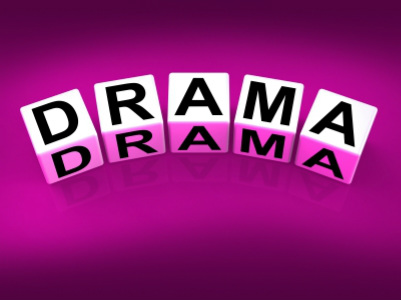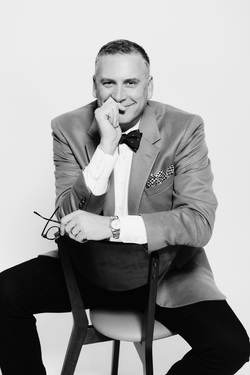
Scotoma, from the Greek word for darkness.
Everyone has blind spots in life. And they can strike in any direction. Looking back to the past, our blind spots can be due to an inability to take responsibility for mistakes we've made or pain we've caused. Without acknowledging those truths, it's nearly impossible to fully learn what we need to from our pasts.
Blind spots can also come up alongside us. When we can't see the help available to us by those people or circumstances that exist in the present, either out of pride or insecurity, we are unable to draw others in and function through effective teamwork. Other blind spots at our sides can be caused by workplace competition, family struggles, financial hardships, and more. Anything that limits or eliminates forward motion can be considered a blind spot because it keeps us from seeing progress.
But it's the blind spots in front of us that can cause the most trouble. Fear is the biggest hurdle we have to overcome when looking into the future. The fear of missing an opportunity, of making a big mistake, of being wrong--when faced with those things, it's often easiest and safest to do nothing.
“In any moment of decision, the best thing you can do is the right thing.
The worst thing you can do is nothing."
Theodore Roosevelt
It's true that a blind spot isn't first identified until it causes a problem. When looking in a side-view mirror, you may not know you have a problem until there's an accident or until another vehicle shows up out of nowhere. But once it's identified as a trouble spot, then you make the necessary adjustments to avoid any mishaps it might cause.
The same thing is true in life. Once you explore your past, present, and future, and identify the areas that have and will cause you the most trouble, you can make the adjustments you need to make to overcome those weakness.
For example, if you know that insecurity is something that chases you, you can fix it. Maybe you do something that makes you feel confident before entering a job interview. Or maybe you talk with someone about the crippling doubts you have about yourself. Or maybe you move forward in faith anyway because you've decided not to let something like that hold you back.
Here are four tips that will help you move beyond the limitations caused by blind spots in your life:
Identifiy Known Blind Spots
Everyone has blind spots. Do you know what your blind spots are? Often, it requires a trusted friend, professional counselor, or member of your personal Board of Directors to help you discover areas in your life that you may not be able to clearly see. (I've written more about this in a previous post, Connecting the Dots, 1.13.14 and in my book, The Difference Maker) NOTE: It helps to understand that a blind spot is only a weakness if it is unknown. Knowing your blind spot is a strengh.
Be on Guard
Having experienced driving for the first time years ago and more recently through the eyes of my kids, I can speak from firsthand experiences...accidents happen QUICKLY. It is vital that we constantly check known blind spots. The moment you stop checking...BANG!
Check What You Know
Being uninformed about any subject creates a lack of confidence, which leads to major blind spots. In an age of complete information saturation it is possible to become knowledge lazy when it comes to important information in your life. Relying on internet headlines for knowledge can create challenges. Do you really know what you know or only what you've been told? If you truly know, then a deep conviction leads to confidence...which produces courage. It is from this courage that your ability to become truly vulnerable comes from.
Embrace vulnerability
Being connected in a meaningful way requires vulnerability. As I type that word I know people are tensing up inside. The word itself has some baggage attached to the meaning. Many hear the word and translate it as weakness. What I have said on this topic before is this, " Courage is not the lack of fear but our ability to face our fear with vulnerability." Being vulnerable is all about Courage! It manifest itself through our ability to share our story with others in an effort to help them with their blind spots. Vulnerablity is also the confidence to deal with what I know head on without excuses. Often we replace being vulnerable with the blaming of someone or some thing. The act of vulnerability begins with a personal choice to rise above your circumstance. To do that may require the help of others, personal or professional. I have said many times, "Two are better than one because there is a good return on their investment. Should one stumble the other is there to pick them up."
The idea here is simple, minimizing the impact of being blind sided increases our effectivness in all areas of life. If we strive to live a purpose driven life then anything we do to maximize that purpose is beneficial.
Onward!


 RSS Feed
RSS Feed